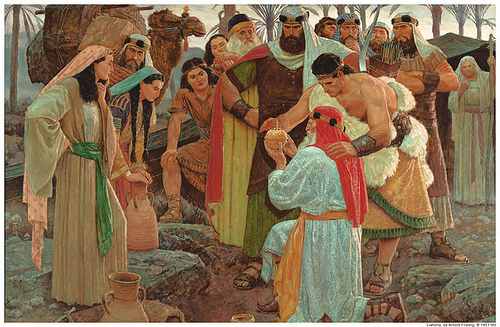Humanity’s stories are often filled with desire for something more, with homesickness, a wanderlust that leads characters to leave home and to enter the wilderness—whether physical, psychological, or emotional—in search of true belonging, something they’re never quite able to find. This yearning and its subsequent lack of fulfillment are illustrated well by 19th century poet Eliza R. Snow: “[O]fttimes a secret something / Whisper[s], ‘You’re a stranger here’”; and if strangers, then far from Home. T.S. Eliot, the 20th century poet, captures a similar feeling in the following lines from “Little Gidding,” the fourth movement (as it were) of Four Quartets (has anyone seen my copy laying around, by the way?): “With the drawing of this Love and the voice of this Calling // We shall not cease from exploration” (lines 238-9). Such homesick wanderlust is the common lot of all humanity, through time and through space.
In “How Long,” Darlene takes up this longing in a self-consciously Mormon narrative. Here the poet “find[s her]self Lehi, encamped in a tent” (1) somewhere in the desert of imagination, trapped in the endlessly looping drama of wilderness travel:
Arise, retire.
Arise, retire.
Work and pray and dance.
Retire. (3-6)
And here the poet awaits direction from God regarding how to approach the ocean stretched wide before her—more specifically, as she asks in the poem’s final line: “[W]hat shall I do with this lack of motion?” (19). Such “lack” is something that characterizes this poem. It’s built on an essentially circumlocutious absence of direction intended, I think, to represent the poet’s endless quest to navigate the many waters of language, human existence, and our relationship with the past and with God. And she takes up this quest, as many writers do, every time she takes up the pen to explore some new world with words that always seem to circle back on themselves.
And the end of all this exploring? Well, maybe Eliot had it right: “to arrive where we started / And know the place”–and ourselves–“for the first time.”

